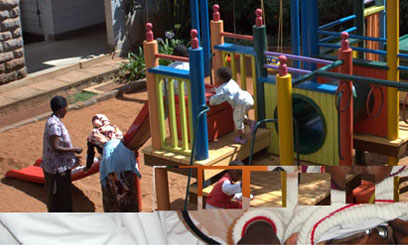
Secretary General Musau Ndunda said that the government should first address challenges in the education sector including employing more teachers, constructing classes, providing free uniforms, transport and food for students/FILE
NAIROBI, Kenya, Aug 21 – The Kenya National Association of Parents (KNAP) has faulted the Cabinet for approving the Bill on Basic Education, saying the proposal to jail parents for failing to take children to school was ‘irrational’.
Secretary General Musau Ndunda said that the government should first address challenges in the education sector including employing more teachers, constructing classes, providing free uniforms, transport and food for students.
“We term the proposal by Cabinet as irrational and a mockery to Kenyan parents. We expected the Cabinet to have first analysed the challenges facing school going children and their parents and come up with a strategy on how to overcome those challenges,” charged Ndunda, adding that over 2.5 million children were out of school.
“How do you take a Kenyan parent who is not even able to feed himself to prison? We are telling the government to take us to court and we will meet them there and challenge them,” he insisted adding that proposed fine be reduced to Sh1,000.
Other concerns that KNAP wanted addressed include the provision of shoes for school going children and the abolishing of the cost sharing mode in the financing of education.
“The cost sharing strategy is now contrary to provisions of the Constitution as free education is compulsory,” he said.
Last week, the Cabinet approved The Basic Education Bill 2012 which makes it illegal for children to be out of school and imposes punitive jail terms and fines for parents and guardians who flout the law.
Under the Bill, a person who fails to take his or her child to school is liable on conviction to a fine not exceeding Sh100,000 or to imprisonment for a term not exceeding one year, or both.
The Bill also states that it is illegal to employ a child of school age or under 18 years, and that punitive action will be taken against those who exercise cruelty on children.
Ndunda affirmed that disabled children estimated at about 300,000 majority of who are deaf and blind were unable to access education for lack of facilities and curriculum.
“Millions of children go to school without food so you cannot retain them in the schools if there is no consistent feeding program,” he added while at the same time telling the government to offer better structures.
Ndunda who is accompanied by disabled students and parents said that the government should also implement recommendations of the taskforce on special needs in education.
The report on special needs prepared in 2003 recommended that the government should give disability allowance to parents of disabled children to enable them cater for the welfare of the children.
Among those highlighted in the report are parents of severely handicapped children such as those with muscular dystrophy, epilepsy, autism, deaf-blind and parents of those with mental handicap.
Edwin Osundwa of Sense International East Africa who deals with the blind and deaf said most parents who have this handicapped children have opted out of their jobs to become care givers for their children.
“These children need constant support and the parents have to be there or hire and train a person to become a permanent care giver which is an extra cost,” said Osundwa who is himself blind.



No comments:
Post a Comment